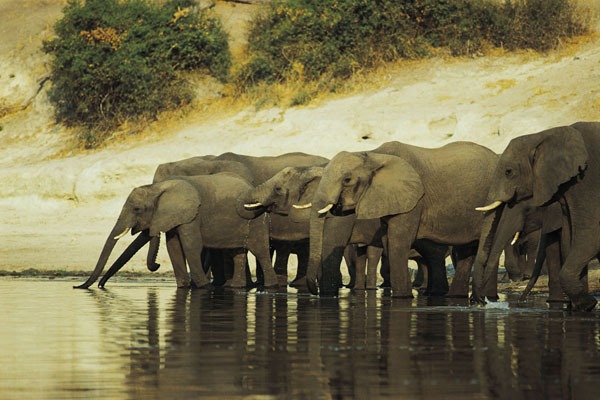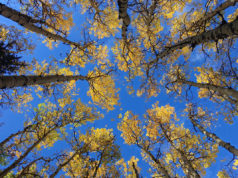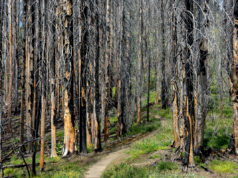Dear EarthTalk: How are populations of African elephants faring these days? What conservation efforts are underway and are they working? – Libby Broullette,
A century ago some five millions wild elephants roamed Africa. Today fewer than 500,000 remain, a result of poaching for meat and ivory as well as habitat loss due to expanding human development.
A century ago some five millions wild elephants roamed
The United Nations Environment Programme (UNEP) reported recently that African elephants are “under severe threat” with double the number killed and triple the amount of ivory seized in recent years over previous decades. And the International Union for the Conservation of Nature (IUCN), which maintains the international “Red List of Threatened Species,” categorizes African elephants as “vulnerable” and warns that conservation initiatives are not working to stem declining population numbers.
According to the World Wildlife Fund (WWF), poachers kill tens of thousands of African elephants each year to meet the growing demand for ivory products across the
In addition to the demand for ivory, war and natural resource exploitation across
Beyond poaching, habitat loss looms larger and larger over
“Commercial logging, plantations for biofuels and extractive industries like logging and mining not only destroy habitat but also open access to remote elephant forests for poachers,” adds WWF. “In addition, extensive logging of forests leaves elephants with a very limited food supply, which results in high levels of human-elephant conflict when hungry elephants enter villages and destroy local farmers’ crops.”
In 2011, U.S. Congress reauthorized the long dormant African Elephant Conservation Act, putting $1.7 million into rescue efforts. Green groups raised another $3.6 million and now 29 on-the-ground projects are working to help restore elephant herds across
CONTACTS: CITES, www.cites.org ; UNEP, www.unep.org ; IUCN, www.iucn.org ; WWF, www.worldwildlife.org
Pic Credit: Comstock
EarthTalk® is written and edited by Roddy Scheer and Doug Moss and is a registered trademark of E – The Environmental Magazine (www.emagazine.com). Send questions to: earthtalk@emagazine.com. Subscribe: www.emagazine.com/subscribe. Free Trial Issue: www.emagazine.com/trial.








